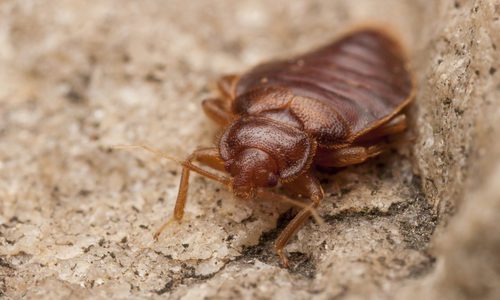Best Kings Bug Control Cincinnati: Premier Pest Control Experts
Best Kings Bug Control Cincinnati: Premier Pest Control Experts
Blog Article
Sorts Of Insect Control: Which Technique Is Right for Your Invasion?
When confronted with a pest invasion, the choice of a proper method for bug control is crucial in efficiently handling the scenario. From chemical therapies to organic solutions, there exists a range of methods that can be utilized to attend to various kinds of parasites. Each method comes with its own set of considerations and benefits, making the decision-making procedure a nuanced one. Understanding the subtleties of each approach and evaluating their compatibility with the particular insect infestation at hand is important for accomplishing long-term success in pest management. By exploring the various kinds of parasite control approaches readily available, people can make enlightened choices tailored to their distinct situations, guaranteeing a more lasting and reliable outcome in parasite elimination.
Chemical Insect Control
Chemical pest control entails using artificial or naturally acquired chemicals to handle and eradicate pest populaces effectively. This approach is typically made use of in agriculture, forestry, and residential setups to deal with a vast array of bugs, including rodents, weeds, and pests. Making use of chemical pesticides can provide quick and targeted remedies to pest infestations, making it a preferred choice for numerous people and businesses.
One of the vital advantages of chemical insect control is its capacity to promptly eliminate bugs, lowering the risk of damage to plants, residential or commercial property, and human wellness. By using particular chemicals that target specific bugs, this approach can effectively manage invasions while decreasing injury to advantageous organisms and the atmosphere when used appropriately.
Nonetheless, the use of chemical pest control also increases worries regarding possible damaging results on non-target varieties, water resources, and human wellness. It is crucial to follow safety guidelines, apply chemicals responsibly, and consider alternative pest control methods to decrease these threats and make certain lasting bug monitoring methods.
Biological Insect Control
Biological bug control, likewise known as biocontrol, uses living organisms to handle and reduce parasite populations normally. By using the bug's all-natural predators or virus, biological bug control offers a ecologically pleasant and sustainable remedy to pest management.

Mechanical Parasite Control
Making use of physical and hand-operated approaches to handle bug populations, mechanical insect control provides an alternative approach that does not depend on using living organisms or synthetic chemicals. This method entails the usage of barriers, traps, or other devices to physically deter or eliminate bugs. By blocking insect entrance points or establishing catches to catch them, mechanical bug control can successfully minimize infestations without presenting chemicals into the environment.
One usual instance of mechanical insect control is the use of mesh displays on doors and windows to stop pests from going into structures. This straightforward yet efficient method works as a physical barrier, keeping bugs out while permitting proper air flow. Additionally, tools like mousetraps, fly swatters, and ultrasonic repellents fall under the mechanical parasite control classification.
While mechanical pest control approaches can be labor-intensive and need normal tracking and upkeep, they provide a lasting and ecologically friendly remedy for handling parasite infestations. By incorporating different mechanical methods, homeowner can produce a comprehensive bug control strategy that lessens dependence on chemical pesticides.
Physical Insect Control

Some common physical parasite control approaches consist of using barriers such as internet or screens to avoid pest entrance, catches to catch and get rid of bugs, and hand-picking to literally eliminate bugs from plants or frameworks. Furthermore, strategies like warm therapies can be made use of to control bugs like bed pests by raising the temperature level to levels that are dangerous to the pests.
Physical insect control is specifically useful in incorporated parasite monitoring (IPM) approaches, where several insect control techniques are integrated for efficient pest administration while reducing making use of chemicals. By using physical pest control strategies, people can effectively address pest problems with very little ecological effect.
Integrated Pest Monitoring
When applying physical insect control methods as component of bug administration methods, Integrated Insect Management (IPM) becomes a detailed technique that leverages different strategies to efficiently regulate pest populations. IPM focuses on lasting avoidance of insects via a combination of biological, social, physical, and chemical tools tailored to certain bug issues. By integrating several control tactics, IPM aims to decrease the risks related to parasites while likewise lowering reliance on chemical services.
One secret facet of IPM is the emphasis on monitoring and analyzing pest populations to identify one of the most suitable control techniques. This aggressive strategy enables early intervention and targeted techniques, causing extra efficient insect administration. In addition, IPM advertises eco-friendly practices by prioritizing non-chemical control techniques and learn this here now only utilizing chemicals as a last hope.
Verdict

By using the insect's natural predators or microorganisms, organic bug control offers a sustainable and eco pleasant service to pest administration. - Kings pest control services Cincinnati oh
Making use of manual and physical techniques to take care of pest populations, mechanical insect control provides an alternate strategy that does not count on the usage of living microorganisms or synthetic chemicals.An effective method to handling bug populaces without depending on chemical or organic techniques includes the use of physical bug control methods.When applying physical parasite control approaches as component of bug administration strategies, Integrated Bug Administration (IPM) emerges as an extensive method that leverages different techniques to effectively control pest populaces. Chemical pest control This Site involves the usage of chemicals, organic bug control uses natural killers, mechanical bug control involves physical obstacles, physical bug control includes trapping or getting rid of bugs, and integrated pest monitoring integrates numerous methods for a holistic technique to pest control.
Report this page